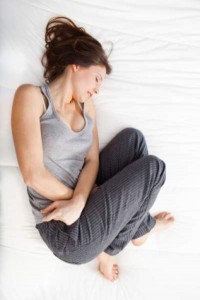 What is Endometriosis?
What is Endometriosis?
Known as a gynecological condition, Endometriosis affects between 4-15% of all women during their reproductive years. Endometriosis is the abnormal growth of endometrial cells (similar to those that form the inside or lining the tissue of the uterus) outside of the uterus and are expelled each month during the period cycle. It is also one of the leading causes of infertility (up to 50% of cases) and pelvic pain. The exact reason for this external cell growth is unknown.
The majority of reported cases occur in women ages between 25-35; although this may be due to it being discovered due to fertility issues. Many women do not even know they have it, and it has been discovered in girls as young as 11 but rare in postmenopausal women. If no symptoms appear then the rule of thumb is not to treat it.
The symptoms
Symptoms of endometriosis are pain (which is often worse during the menstrual cycle) and infertility. The pain is also known to be the most common cause of secondary dysmenorrhea (period pain, menstrual cramps, stomach/back/leg pain or headaches associated with periods).
Curing
Modern medicine typically confirms Endometriosis with laparoscopy, needless to say medication and/or surgery is required to remove it. In fact, many doctors prefer to suppress the symptoms with birth control pills, which in the long-term effects fertility. With Naturopathy however, we take a much different approach.
The Naturopathic Solution
Naturopaths use a holistic approach utilising remedies that include herbal treatment, diet and nutrition, acupuncture, massage, exercise, transcutaneous electrical nerve stimulation (TENS), and other complementary treatments to manage the symptoms of endometriosis.
According to natural traditional medicine, Endometriosis is due to liver (responsible for eliminating toxins) conditions. It should be noted that the liver is responsible for regulating sex hormones and estrogen. A lot of research has been undertaken to determine why some women suffer more that others. Although not conclusive, some evidence suggest the following
- Contamination from tampons which produce dioxin (a result of chlorination)
- Poor diet, overly acid; not enough fresh fruits and vegetables
- Excessive alcohol consumption
- Too thin a frame (overly thin women tend to have less estrogen produced making pregnancy more difficult)
Book Appointment Online or call us on (03) 9388 0080.

